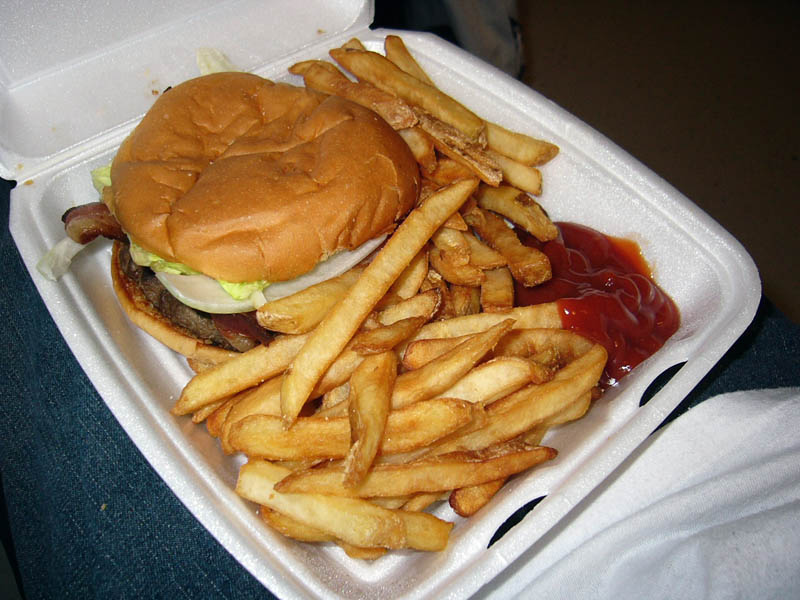
What Is It Like To Be a Truck Driver?
Being a truck driver is more than just driving to make a living. Truck drivers have a degree of freedom that isn’t comparable to other jobs. There’s no boss looking over your shoulder, and the view out your window is always changing.
On the other hand, trucking is no cozy office gig with regular breaks and brunches. When you drive over-the-road (OTR), you may not even see your family for a week or more.
Truck driving isn’t merely a job, but rather a lifestyle.
See the Country
The first and most obvious part of living a trucking lifestyle is that you will see and visit different places all across the country.

From the Rocky Mountains to the deserts of Arizona, the rolling hills of Tennessee, fields of corn in Indiana, and everything else in between, truck drivers see more in a few weeks than many Americans will in a lifetime. Sea to shining sea.
While you probably won’t have time to tour the National Parks or hit the waves of California, just getting to see magnificent sunrises and sunsets makes the task at hand much more bearable. Sometimes, being a truck driver can feel like a vacation.
On the other hand, there is sometimes bad weather, which can even turn into a dangerous driving experience.
Life of a Truck Driver
Local drivers get home at the end of the day. Long-haul truck drivers, though, must live out of the truck and sleep in the cab.
The sleeper berth can be surprisingly comfortable, but it doesn’t compare to a night at home. Today’s trucks do have electricity, which lets you have small coffee makers and microwaves.
Unfortunately, trucks don’t have their own bathrooms. Drivers must use public showers and restrooms… or the side of the road.
Drivers must be okay with using public facilities before they consider becoming a truck driver.
In reality, truck stops are actually not that bad. The showers are much like those at motels, and the food can be good at specific truck stops. But eating at the same spots can get repetitive pretty quickly. Meals often have to be put off for a few hours in order to get to your destination on time, so packing snacks is a must.
Freedoms of Driving a Truck
Being a truck driver is great for people who like making their own path. While you do have deadlines for deliveries, truck drivers have the say in when they are going to drive, take a lunch break, or stop for the night. Many truckers even prefer to drive at night to avoid traffic, so they set their schedule to stop in the morning.

Truck drivers have no dress code besides looking professional enough to enter a company loading dock office. No shaving required (but regular bathing is highly recommended!)
With this great freedom also comes great responsibility: You have to make sure that you are fit to drive, and if you don’t make the scheduled delivery times, the fault lies with you.
New challenges come each and every day, whether from traffic to breakdowns and detours, so you have to be able to adapt quickly and take on day-to-day obstacles.
Of course, driving a 72-foot-long, huge, powerful machine with almost 600 horses under the hood has its own allure. And because truck drivers are responsible for deliveries all around the country, they are a critical part of the nation’s economy.
If you’re asking yourself “Will I Be Successful?” then we’ve got good news. We’ve dedicated an entire section to that question – with advice from real truck drivers. Check it out here.
Is Truck Driving Hard?
This seemingly simple question has a lot of answers, and the primary answer depends on each person and their personality. Ask a new driver with less than 5,000 miles under the belt, and you’ll hear that, yes, being a truck driver is very hard. Ask the 15-years-on-the-job veteran, and you’ll get a laugh and a lot of words you may not be used to as a non-trucker.
Isolation Is Part of the Job
Truckers spend the vast majority of their time driving alone for days, weeks, and months at a time. You interact with people at the truck stop or the shipper/receiver, but you’re mostly on your own. This can certainly take a mental toll.

Many truckers bring small dogs or passengers, but for a large amount of drivers, it’s just the driver and the road.
In addition to the mental effects of isolation, living a trucking lifestyle is obviously a strain on relationships, including family.
Many truckers rely on video chat and regular phone calls, but if your significant other or spouse has their own busy schedule, it’s still a challenge.
Some truckers do team up with a partner for team driver. If you don’t have responsibilities with a child or house payment, you and a spouse can hit the road together and make even more money. And this also brings the benefit of having moral and even needed physical support (for when the tandem slide locking pins are being uncooperative, etc.)
Risks of Driving a Truck
Truck driving is a dangerous profession, and that’s a lesson that comes quickly to new drivers on the road. You simply do not have the short stopping distance of a passenger vehicle, and taking steep curves at above the speed limit can easily tip your trailer over, especially when it’s loaded lightly.

Fortunately, the risk of jackknifing was reduced when trucks were equipped with non-locking brakes, but jackknifing is still a possibility, especially in adverse conditions.
The four-wheel drivers on the road can often be a danger to themselves and truck drivers. Many drivers are just not aware of what your truck can do or how it moves. You must always take extra care to ensure the safety of yourself and the other distracted drivers on the road.
Another danger for truck drivers is the possibility of giving in to an unhealthy lifestyle. Truck drivers simply don’t have time to cook nor do they have the means to do so.
Drivers often go for the cheap and unhealthy food at truck stops. And they don’t make time for exercise. This is made worse by the fact that drivers often sit for 12 hours at a time.
The View of Truck Drivers
One difficulty that some drivers deal with is the stigma of being a truck driver. When semi-trucks first hit the road, truck drivers were known as the brave cowboys of the west, resilient knights ensuring a healthy economy for the common person. Unfortunately, that view has changed.
As the trucking industry grew, four-wheel drivers began to blame truckers for all their commuting problems. Truckers started to be seen as low-class. This stereotype expanded to depict truck drivers as fat, lazy, and even as reckless, speeding monsters. Dealing with this stigma just isn’t a fun part of being a truck driver.
Conclusion
Truck drivers leave the industry for a variety of reasons: relationship issues, health problems, or dissatisfaction with the job. Most drivers that leave are new hires who had some widely-skewed preconceived ideas about what trucking will be like. The truth is that you can make just as much starting out as an OTR trucker as you can make working at the fuel desk for the same company, with significantly less hours and amounts of stress.
If you commit to trucking long-term, however, you become more marketable with each passing year. Your dedication leads to higher wages, better loads, and a better job overall. If you put in the time, you will reap the rewards. But it does take time, and, yes, it can be hard.
This job is truly unlike any other. The freedom of the open road, the sights, and the personal growth in both confidence and problem-solving can all make the journey very much worth it.
